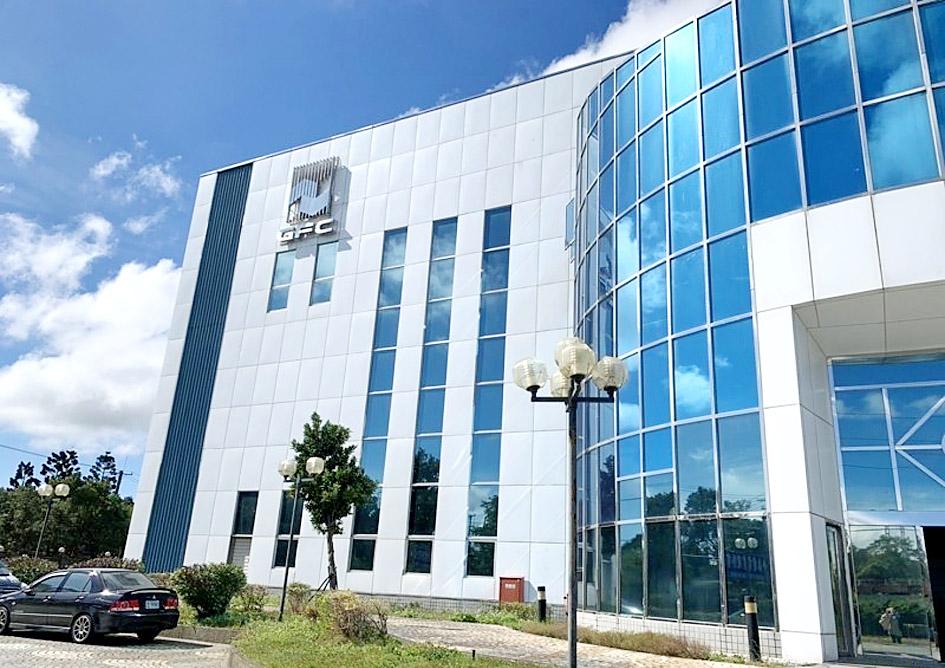Elevator and escalator supplier Golden Friends Corp (GFC, 崇友實業) is positive about business this quarter, supported by new demand, as well as maintenance and replacement needs amid a property boom and a vibrant economy.
The Taipei-based company gave the upbeat assessment after posting a 21.27 percent increase in revenue for last quarter to a record NT$1.26 billion (US$45.54 million).
Golden Friends attributed the revenue growth to profit recognition from selling elevators to public housing projects in Taipei’s Neihu (內湖) and Nangang (南港) districts, as well as effective replacement promotion campaigns.

Photo: Lin Jing-hua, Taipei Times
Replacement business soared 36.63 percent year-on-year in the October-to-December period, while its maintenance arm served 38,845 elevators, it said in a statement.
The firm sells elevators and escalators under its own GFC and Genesis brands, and has been a contract maker for Japan’s Toshiba elevators and escalators.
The boom in the local property market has led developers to accelerate housing project construction and the process has benefited Golden Friends, it said, adding that strong elevator sales would shore up business at its maintenance division.
For the whole of last year, the company’s revenue grew 4.82 percent year-on-year to NT$4.61 billion, it said.
Looking forward, Golden Friends said that it would seek to expand its market share and customer base by developing high-speed elevators equipped with Internet of Things and facial recognition technologies.
Order visibility looks bright this quarter, as it has signed deals to supply elevators for luxury home projects and international tourist hotels in Taichung, it said.

NEW IDENTITY: Known for its software, India has expanded into hardware, with its semiconductor industry growing from US$38bn in 2023 to US$45bn to US$50bn India on Saturday inaugurated its first semiconductor assembly and test facility, a milestone in the government’s push to reduce dependence on foreign chipmakers and stake a claim in a sector dominated by China. Indian Prime Minister Narendra Modi opened US firm Micron Technology Inc’s semiconductor assembly, test and packaging unit in his home state of Gujarat, hailing the “dawn of a new era” for India’s technology ambitions. “When young Indians look back in the future, they will see this decade as the turning point in our tech future,” Modi told the event, which was broadcast on his YouTube channel. The plant would convert

‘SEISMIC SHIFT’: The researcher forecast there would be about 1.1 billion mobile shipments this year, down from 1.26 billion the prior year and erasing years of gains The global smartphone market is expected to contract 12.9 percent this year due to the unprecedented memorychip shortage, marking “a crisis like no other,” researcher International Data Corp (IDC) said. The new forecast, a dramatic revision down from earlier estimates, gives the latest accounting of the ongoing memory crunch that is affecting every corner of the electronics industry. The demand for advanced memory to power artificial intelligence (AI) tasks has drained global supply until well into next year and jeopardizes the business model of many smartphone makers. IDC forecast about 1.1 billion mobile shipments this year, down from 1.26 billion the prior

People stand in a Pokemon store in Tokyo on Thursday. One of the world highest-grossing franchises is celebrated its 30th anniversary yesterday.

Zimbabwe’s ban on raw lithium exports is forcing Chinese miners to rethink their strategy, speeding up plans to process the metal locally instead of shipping it to China’s vast rechargeable battery industry. The country is Africa’s largest lithium producer and has one of the world’s largest reserves, according to the US Geological Survey (USGS). Zimbabwe already banned the export of lithium ore in 2022 and last year announced it would halt exports of lithium concentrates from January next year. However, on Wednesday it imposed the ban with immediate effect, leaving unclear what the lithium mining sector would do in the